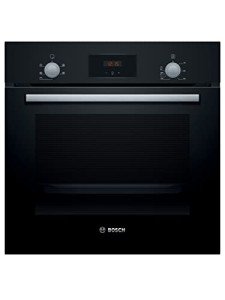12 Companies Are Leading The Way In Built In Range
Understanding Built-In Range Cookers: Features, Benefits, and Considerations
In the realm of modern-day cooking appliances, built-in range cookers have become an ultimate option for property owners and cooking lovers alike. Blending functionality with aesthetics, these appliances offer a smooth cooking experience while boosting kitchen design. This article delves into the functions, benefits, and factors to consider of built-in range cookers, offering insights to assist potential buyers make notified decisions.
What is a Built-In Range Cooker?
A built-in range cooker integrates numerous cooking functions within a single system, created to be installed directly into kitchen cabinetry. Unlike freestanding designs, these cookers provide a more tailored appearance and can be seamlessly integrated into kitchen designs. Generally including an oven and cooktop combined, built-in range cookers are readily available in a variety of setups, sizes, and fuel types, consisting of gas, electric, and dual-fuel alternatives.
Key Features of Built-In Range Cookers
Function
Description
Size Options
Generally offered in widths of 30”, 36”, or more
Oven Capacity
Varies from single to multiple ovens or ovens with additional capability
Cooking Functions
Include baking, roasting, broiling, and convection
Control Types
Can feature digital displays, knobs, or touch controls
Self-Cleaning
Some designs feature self-cleaning capabilities
Safety Features
Equipped with timers, kid locks, and flame failure devices
Style Flexibility
Available in several surfaces: stainless-steel, matte, etc.
The previously mentioned features show the adaptability and customization that built-in range cookers offer, accommodating diverse cooking designs and choices.
Benefits of Built-In Range Cookers
There are many advantages to choosing a built-in range cooker for your kitchen. Below are some of the main advantages:
Space Efficiency: Built-in range cookers can save important kitchen area by being integrated into cabinetry, permitting a cleaner, more open look.
Aesthetic Appeal: These cookers provide a structured look that can boost the general style of a kitchen, providing a high-end appearance that customers desire.
Enhanced Functionality: Many built-in range cookers come with advanced functions such as programmable settings, precise temperature level control, and several cooking modes that make cooking much easier and more effective.
Customization: Since built-in varieties typically fit into standard kitchen cabinetry, homeowners have more control over their kitchen layout, enabling them to design a cooking space that fits their specific needs and visual requirements.
Durability and Quality: Built-in range cookers are typically built from top quality products, resulting in increased durability and efficiency durability compared to some freestanding choices.
Considerations Before Purchasing
While built-in range cookers provide many advantages, potential buyers should also think about the following points:
Cost: Built-in designs can be more expensive due to their construction and setup requirements. It's crucial to assess your spending plan before making a decision.
Installation Requirements: Professional installation is typically recommended, which can sustain extra costs. Proper installation is important for both performance and safety.
Upkeep: Built-in varieties frequently require specific upkeep methods, especially oven cleansing, which might differ from freestanding units.
Compatibility: Ensuring that a built-in range cooker fits perfectly into kitchen cabinetry is fundamental. Buyers ought to measure their areas completely before acquiring.
Resale Value: Invest in a premium built-in range cooker that appeals to future buyers if the home is ever sold.
Frequently Asked Questions (FAQs)
1. How much area do I need for a built-in range cooker?
The area needed depends upon the cooker's measurements. integrated hob and oven and describe the producer's guidelines to ensure a proper fit.
2. Are built-in range cookers more energy-efficient than freestanding designs?
Energy performance varies by model. Search for energy scores and features like convection cooking that typically boost effectiveness.
3. Can I install a built-in range cooker myself?
While some experienced DIYers might try self-installation, expert setup is highly recommended for security and ideal efficiency.
4. What types of fuel do built-in range cookers use?
Built-in range cookers can be powered by gas, electrical energy, or dual-fuel systems. The option of fuel frequently depends on personal preference and the kind of cooking you prepare to do.
5. Are built-in range cookers suitable for little kitchen areas?
Yes! Depending on the design, built-in range cookers can frequently optimize performance and effectiveness in smaller sized cooking areas.
Built-in range cookers represent a harmonious blend of type and functionality in the modern kitchen landscape. Providing various setups, visual advantages, and exceptional cooking capabilities, they provide an attractive service for anybody wanting to improve their cooking area while including value to their home. However, built in oven and hob to consider the associated costs, setup requirements, and maintenance before making a decision.
In summary, built-in range cookers can elevate cooking experiences while preserving kitchen elegance, proving to be a beneficial financial investment for both enthusiast cooks and skilled chefs.
- * *
By comprehending the features and benefits, in addition to the considerations for purchasing built-in range cookers, consumers can confidently approach their decision, ensuring they choose a home appliance that best fits their cooking designs and kitchen designs.
